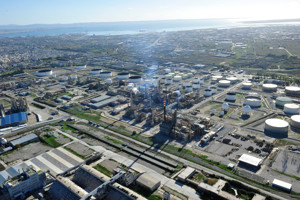Online Exclusive Executive Viewpoint: The economics of reliability: Global refining 2022
Pinnacle has published multiple “Economics of Reliability” reports over the years, spanning a wide range of industries. Throughout the analysis and consideration that has gone into these reports, rarely have there been as many exceptional factors playing into the results as there are right now. For instance, another slew of news stories about high energy prices are flashing across the TV in my office. Among the many storylines being discussed about energy prices, there is wide speculation that the current wave of energy price spikes will cost President Biden and the Democratic Party major losses in the next two election cycles. While dozens of factors are driving current energy market conditions, these recent news stories remind us: access to affordable, reliable energy is critical to a functioning economy.
This, in itself, is far from a novel idea. But as we conducted our “Economics of Reliability” analyses for the refining sector this quarter, this lens provided some particularly sharp insights into phenomena driving reliability needs to new heights.
First, there is a strange condition in the market today. Free market economics tells us that when refiners experience some of the highest margins on record, they normally capitalize on those margins by making or planning for major investments to increase throughput. However, the recent wave of anti-oil-and-gas sentiment that has plagued public discourse and government messaging has made oil company CEOs hesitant to announce major investments. Why ask a board or shareholders to invest cash in something that 60% of the world’s politicians say needs to go away? Combining this sentiment with the fact that the world lost about 5% of its refining capacity during the government lockdowns means that current refineries MUST run as reliably as ever to fulfill the world’s demand for gasoline, diesel, and jet fuel.
Second, even though refining margins are at or near an all-time high, other forces are making it hard to stay in business long term. The cost of commodities (crude oil, steel, natural gas), labor pool shortages, and government regulations are disproportionately driving up the cost of operating refineries to the margin trends. As a result, some plants are still challenged. Case in point, LyondellBasell announced that it would shut down its Houston refinery by the end of 2023. There have been various issues with that refinery, ranging from a lack of upgrades over the years to inconsistent operations. A recent article about this decision reported that if the plant had a major equipment failure, it might shut down even earlier. This example shows us that despite some major tailwinds that should deliver record profits to refineries in the near term, refineries that run unreliably are still unprofitable.
Third, not all reliability spend is created equal. As we correlate reliability spend to profitability and utilization; we see that operator spending on reliability spans a wide range. In addition, we see that the correlation between that spend and actual reliable operation is relatively loose, showing us that many refiners are working to make their facilities more reliable. Still, some appear to be making real improvements with their investments, while others appear to be spending with almost no notable improvements.
In all, the refining segment provides some of the starkest examples of reliability, facility performance, and profitability that we have seen in recent history. Still, the takeaway continues to be the same: when it comes to big industries, reliability wins, and unreliability loses.
BIO
Ryan Sitton is the Founder and CEO of Pinnacle, an organization that exclusively focuses on helping industrial facilities in the oil and gas, chemical, mining, and water and wastewater industries better leverage their data to improve reliability performance, resulting in increased production, optimized reliability and maintenance spend, and improved process safety and environmental impact.







Comments